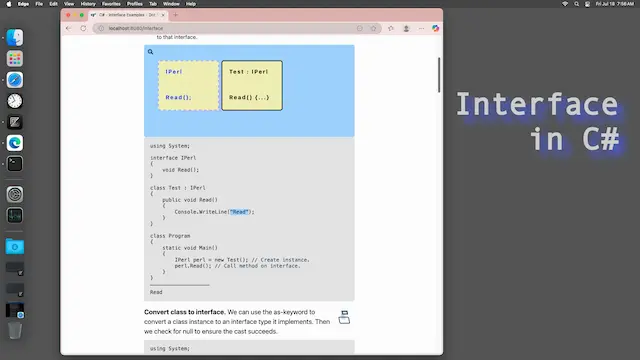Should Interfaces Be Preferred in C#
There are some things about C# that are confusing, even for developers who have known the language for a while. For example, there are many ways to have a type share parts of itself with another type. We have inheritance, abstract classes, and interfaces.

When should we use a normal class, and then derive another class from it? And when should an abstract class be used? Interfaces meanwhile are not a class at all, but allow us to treat different classes as though they are the same, through the interface.
After working with languages that do not support inheritance at all, I suggest just using interfaces:
interface.I am not against using language features to improve program quality, but inheritance often seems to result in excess complexity—to understand one class, you need to understand all the base classes. Instead, with interfaces, our code is flatter and more local to the class. Class derivation can be useful, but in my view, interfaces usually are a better choice.